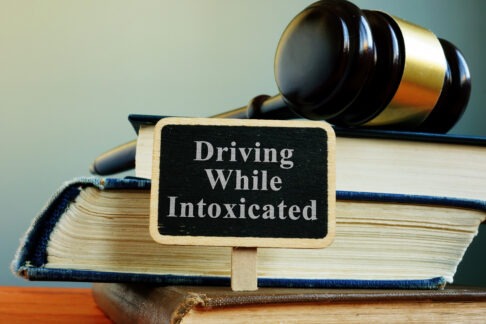Driving under the influence of alcohol or drugs is a serious offense that can lead to significant legal and personal consequences. Recently, cases concerning DWIs in Minnesota have risen, with the highest BAC recorded at a 0.46.
What’s the Difference Between a DWI and DUI in Minnesota?
In Minnesota, the term “DWI” is the legal term used for driving offenses related to impairment by alcohol or drugs. The term “DUI” is not officially used in Minnesota statutes but is often used informally or in other jurisdictions.
To clarify:
- DWI is the term used in Minnesota for the criminal charge related to driving while impaired.
- DUI is not a formal legal term in Minnesota but is sometimes used interchangeably with DWI in general discussions about impaired driving.
What is a DWI?
“DWI” stands for “Driving While Intoxicated.” In Minnesota, a DWI refers to operating a motor vehicle while impaired by alcohol or controlled substances. The legal threshold for intoxication is a blood alcohol concentration (BAC) of 0.08% or higher for drivers over the age of 21. For commercial drivers, the limit is 0.04%, and for drivers under 21, it’s 0.00%.
A DWI charge can result from various signs of impairment, including erratic driving, failing a field sobriety test, or having a BAC above the legal limit. Minnesota law also considers the influence of drugs—whether prescription, over-the-counter, or illicit—as a factor in DWI offenses.
What Are the Degrees of a DWI?
The criminal provisions of a DWI conviction in Minnesota can be vary based on the specifics of the offense, including the offender’s BAC, prior convictions, and whether any aggravating factors were involved (such as having a child in the car or causing an accident). (Chapter 169A)
What is the Best Way to Avoid a DWI?
Preventing a DWI is crucial for maintaining your safety and avoiding legal trouble. Here are some effective strategies:
- Designate a Sober Driver: Always plan ahead for a safe ride home if you plan to drink. Designate a sober driver before you start drinking, or use alternative transportation options such as taxis or ride-sharing services.
- Know Your Limits: Understand how alcohol affects you and know when to stop drinking. Be aware that even small amounts of alcohol can impair your driving abilities.
- Avoid Mixing Substances: Combining alcohol with prescription or over-the-counter medications can increase impairment. Always consult with your doctor or pharmacist about the effects of medications on your ability to drive.
- Stay Informed: Keep up-to-date with the legal limits and consequences associated with impaired driving in your state. Understanding the laws can help you make informed decisions.
- Use Public Transportation: Whenever possible, use public transportation to avoid the risk of driving under the influence. Many cities offer convenient and affordable options for getting around.
- Stay Away from Impaired Driving Situations: Avoid situations where you might be tempted to drive under the influence, such as parties or gatherings where alcohol is heavily consumed.
Who can I contact if I am charged with a DWI?
Attorney Blumberg and his legal team have years of experience in criminal defense and can help you. They are familiar with the procedures for DWIs in Minnesota and are here to help you. If you or a loved one is charged with a DWI, do not hesitate to contact James Blumberg Law at (952) 431-7758.








